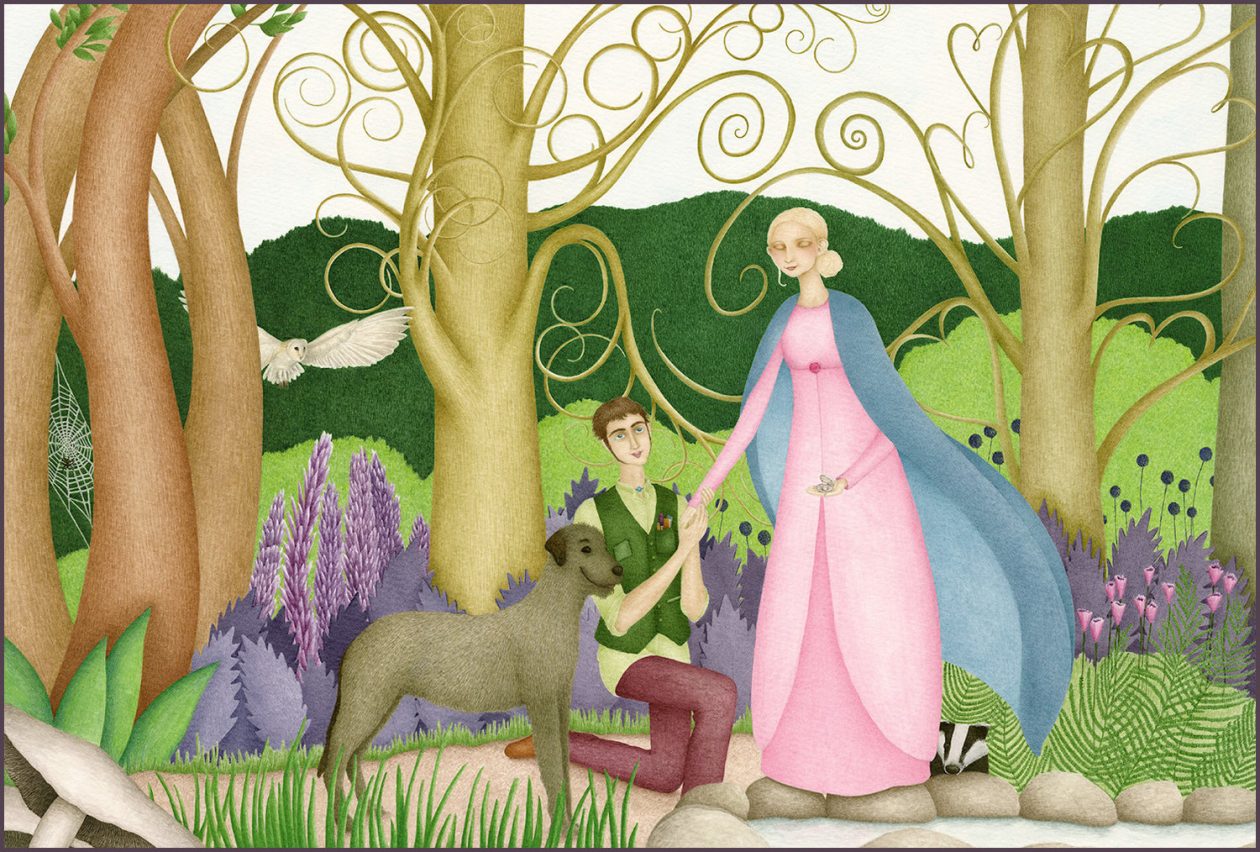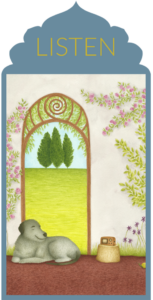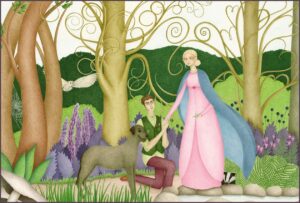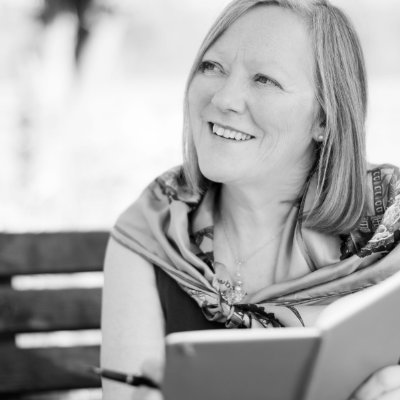
Part 2 MARK STATMAN: MEXICO AND THE POETRY OF GRIEF AND CELEBRATION
Part 2 of my interview with Mark Statman looks closely at Mark’s Latin American poetic influences, his life in Mexico and ends with an extract

 Liz Darcy-Jones aka The Wild Rhymer interviewed about her sound poetry and ‘real listening’, her Biodanza, and her involvement in nature. Liz has moved from ‘business as usual’, working in the corporate sector as a voice coach, to a relational world based on sound and movement.
Liz Darcy-Jones aka The Wild Rhymer interviewed about her sound poetry and ‘real listening’, her Biodanza, and her involvement in nature. Liz has moved from ‘business as usual’, working in the corporate sector as a voice coach, to a relational world based on sound and movement.
Leslie: Could you describe, please, how your ideas have changed from being inside the corporate sector to being The Wild Rhymer on the outside?
Liz: Fundamentally what I am hasn’t changed: ‘Liz Darcy Jones with rhyme in her bones’. I’ve always been moved by a deep desire to discover intimacy with ourselves, each other and the world – intimacy that transcends language. Ironic for one working primarily with words! Finding ways to share that – through being a voice coach and corporate identity consultant – was a 25-year creative journey of exploration, much of it learned by ‘winging it in the moment’.
My work’s always involved challenging ‘business as usual, whether it’s a livid CEO being invited to blow raspberries and erupting into laughter; a Finance Director being asked to articulate what aspect of love his business delivered; or a voice client reciting a personal vocal poem to hear their natural voice after decades of repression. It’s then that a space of curiosity emerges. And may be in the moment, we find we are enough as we are – without a label or constructed persona or image. When this happens, in corporate language, we find we can command undivided attention. Or more simply, love is present.
However, what prompted me to leave the corporate sector eighteen months ago was the recognition that contributing to a ‘flawed’ system is to be complicit in perpetuating its existence. I have the ecological and climate emergency movements to thank for the wake-up call. Increasingly, too, I find life and love to be anarchic by nature, refusing to kowtow to any system. In short, I’m probably too wild for the corporate world these days. It’s kinder to withdraw…
Rhyme, listening, silence, being in nature have always been entry points to feeling a sense of belonging which begets timeless intimacy, although not relationship. Now, along with music and movement, opening these ‘doors’ to those who seek it is central to my life.
Leslie: Can you explain the importance of ‘Pearl’ and ‘Morie’ to you?
Liz: Pearl is easy. I’ve used the acronym ‘PEARL’ throughout my voice coaching work. It stands for
P resent
E ngaged
A nd
R eally
L istening
In order to speak from the heart, you need to be listening. But our ears live in our heads! Argh! Being ‘PEARL’ is way that seems to keep the channel between the two open.

Now ‘Pearl’ has come to life embodied as the girl in the limning ‘Forever Engaging’ I commissioned from Irish artist Nicola Chestnutt, for the home page of my website. (I also suspected it would also hold at least one story within its frame).
Morie – rhymes with story – is a more recent metaphorical character in my life. He tells and plays tales on his little wooden flute. For years I’d been dismissive of people’s narratives, viewing them as mere fantasies focused on the past or future and of little value in ‘the here and now’. But getting to know ‘Morie’, training in Biodanza, my last significant relationship and being involved with Extinction Rebellion has taught me our stories are often dramatically alive and kicking in the present moment! Until they feel heard (by ourselves mostly I think) a new reality or different story seldom presents itself.
Pearl and Morie live inside me. And if you’re curious enough to visit ‘Pearls Place’ in the ‘Secret Spaces’ in my listening soundscape, here, you may find they live inside you, too.
Leslie: What’s the story of Biodanza in your life?
Liz: Biodanza is a non-verbal movement and music ‘system’, founded by Rolando Toro Araneda over half a century ago. Sometimes called ‘the poetry of life’, it’s an instant attractor for someone who’s allergic to sport. Biodanza is founded on the Biocentric Principle, ‘All life is sacred’ and five elements its founder identified as essential to wellbeing. I discovered Biodanza looking for somewhere my mum could dance safely, with freedom, to beautiful music in a group. For me, it’s been life changing, and been instrumental in recovering from chronic fatigue.
Biodanza is also the counter-balance to a life focused on dancing with words. Having trained for four years, I’m now a qualified facilitator and am launching regular classes in Spring 2020. It’s liberating, restorative and, as I put it, ‘rewilds you’ in delicious ways.
Leslie: How do you use sound in your poetry?
Liz: Primarily through rhyme. To me, rhyme is the music of language. It’s wedded to rhythm – which gives us a sense of secure ground from which to receive new ideas. We recognise, albeit faintly, the changing sounds of the seasons and nature. Even the effect of speaking in rhyme for a few moments seems to activate changes in the brain. And, perhaps partly because of my background as a voice coach, I’m aware certain sounds ignite different emotions. This is much more than using onomatopoeia for literary effect. It’s visceral and is as deeply rooted as instinctively knowing certain universal gestures, e.g. ‘rocking a baby’.
The word for ‘mother’ is such a good example. In nearly every language the sound ‘ah’ ‘oeu’ as in ‘’Moeder’ or/and ‘mmm’ are there. Here’s a taste in a poem:
https://soundcloud.com/wild-rhymer-lizdj/mother-tonguemp3
Mother Tongue
Matru, when you birthed the earth’s first Mother tongue
what instinct put the silent hum of being in your name?
motina
maji
mutter
moeder
mum
the sound is just the same in almost every language:
chapped old or young lopsided lips suckle on a breath of warm
and what comes next is too familiar to express
represents a constant that we’re bound by forces far too strong
ever to remember
yet she’s all that we come from.
© Liz Darcy Jones
Sound is the lifeblood of my poetry. It’s why I created a virtual ‘soundscape’ – Wild Poplars – on my website where you can hear my poems grouped into different ‘rooms’ or ‘spaces’ along with guest contributors. Sound resonates more swiftly than the printed word and you can add in texture, volume, speed. I don’t feel poetry is very comfy sitting on a screen. It wants to be heard and fill a space.
Leslie: Would you like to tell us about your ‘Sleepy Rhymes for Troubled Times: Underneath the Smiling Tree’ audio-book/CD. What’s in it and how is it presented? What are the book’s surface and deeper themes/patterns? What binds/links it together, helping it to flow as a diverse unity?
Liz: ‘Sleepy Rhymes for Troubled Times’ is the story which revealed itself after eighteen months gazing at Irish artist Nicola Chestnutt’s limning (miniature) of ‘Forever Engaging’. It’s a bedtime collection of seven rhymes and two lullabies to help us find sound sleep and is for children ‘young’ and old’. It’ll be available as a CD and downloadable album from 27th February, along with a limited-edition print or card of ‘Forever Engaging’ to accompany it. You can hear a track and access full details here.
Music gives the album continuity and flow – soft, beguiling, reassuring – composed and played by my former husband Robin Leonard Jones before he died. And, unbeknown to me when I commissioned the picture, three of four of the non-human characters turn out to be silent ‘Creatures of the Dark’: Infinity the Spider, Rak the Badger and Tia the Barn Owl. Along with ‘Finn Within’ (an Irish Wolfhound), Pearl, Morie and ‘The Smiling Tree’ (which few adults can spot without it being pointed out) these characters welcome the dark, and share different aspects of feeling comfy and safe. We get to inhabit their skins. I know the nightmare of insomnia first hand, and its effects on functioning during the day. For children and adults suffering climate-anxiety and all the other insecurities life seems hell-bent on throwing at us right now, I hope it helps you to sink into restful sleep.

Leslie: What are your ideas about the source and supply of poetic sensibility and creativity in people and the world?
Liz: I love that creativity is an unlimited source. The numerous and virtually instant ways we have of sharing online? I’m not so sure. As to what poetic sensibility is, I do not know. Poetry – especially free verse – seems very subjective to me. Sometimes the simple, childlike joy of someone discovering rhyme for the first time can dispel gloom more swiftly than a long elegy to a lost species.
Too often today, I feel like I’m oversupplied, drowning in online creative outpourings of others burning with outrage or crying out their grieving. I use these words deliberately. It saddens me and I feel compassion. But I do not wish to add to the burning nor to the deluge of more words.
And I wonder who our words are for? I hear howls for real live connection – a warm arm round the shoulders, a voice full of empathy, or being on the receiving end of one-to-one undivided attention. Who or what do we actually need to hear us? Is it ourselves? Is this why a non-verbal discipline like Biodanza is so restorative, because we don’t have to put our feelings into words and yet feel heard?
Usually poetry emerges as a response to direct experience. ‘Creatives’ are relentlessly urged to ‘get it out there’ when ‘out there’ is more often than not the ‘in there’ of a screen or hand-held device. The person who most needs the poem or verse is probably me, the creator, but it’s the nature of the love that created it to share its expression. However, perhaps more often it only need be with the ONE person who arrives at my door rather than live on my twitter feed?
Horror of horrors, maybe NOT necessarily translating all my ‘aha’ moments and getting them onto the production line of creative expression might be a form of conservation, of replenishment, of being a ‘silence activist’ like Gordon Hempton? I can see how, in the last year, I was seduced into producing eco-poetry and chants for a cause at the expense of honing a few rhymes and songs which – possibly – may bring comfort and help eyelids to close.
However, the questions continue to niggle. I wonder whether nature is simply calling us to ‘withdraw’? ‘Withdraw because action is not always more effective than inaction’ as Paul Kingsnorth says, as he goes on to conclude, ‘All real change starts with withdrawal.’ (Page 211 of ‘The Uninhabitable Earth’ by David Wallace-Wells).
And yet, paradoxically, the writing and hearing of rhyme can sometimes bring a listener to a place where words touch and, pouff! Withdrawal from where some tale of woe has stranded you, reveals – via a wild rhyme – to noticing a tiny spider crawling up the side of your laptop, hearing the trickle of water plinking from a gutter onto a roof, or falling into the luxury of dreamless sleep.
Next week I interview modern and traditional folk singer & violinist Jess Arrowsmith.
ABOUT LESLIE TATE’S BOOKS:

Part 2 of my interview with Mark Statman looks closely at Mark’s Latin American poetic influences, his life in Mexico and ends with an extract

I interviewed international poet and translator Mark Statman about Volverse/Volver, his 14th published collection. Mark, who has won national arts awards, is Emeritus Professor of Literary

I interviewed Lisa Dart, finalist in the Grolier, Aesthetica and Troubadour Poetry Prizes and author of The Linguistics of Light (poems, Salt, 2008), Fathom (prose

I interviewed writer Julia Lee Barclay-Morton about her experience of autism. Julia began as an experimental dramatist in New York, moving to the UK to

I interviewed Gillean McDougall from Glasgow, who edited the collaborative projects Honest Error (on Charles Rennie Mackintosh and his wife Margaret Macdonald) and Writing the
| Cookie | Duration | Description |
|---|---|---|
| cookielawinfo-checkbox-analytics | 11 months | This cookie is set by GDPR Cookie Consent plugin. The cookie is used to store the user consent for the cookies in the category "Analytics". |
| cookielawinfo-checkbox-functional | 11 months | The cookie is set by GDPR cookie consent to record the user consent for the cookies in the category "Functional". |
| cookielawinfo-checkbox-necessary | 11 months | This cookie is set by GDPR Cookie Consent plugin. The cookies is used to store the user consent for the cookies in the category "Necessary". |
| cookielawinfo-checkbox-others | 11 months | This cookie is set by GDPR Cookie Consent plugin. The cookie is used to store the user consent for the cookies in the category "Other. |
| cookielawinfo-checkbox-performance | 11 months | This cookie is set by GDPR Cookie Consent plugin. The cookie is used to store the user consent for the cookies in the category "Performance". |
| viewed_cookie_policy | 11 months | The cookie is set by the GDPR Cookie Consent plugin and is used to store whether or not user has consented to the use of cookies. It does not store any personal data. |
2 responses
The Creatures of the Dark, Pearl, Morie, Finn the Irish Wolfhound (and me) thank you for giving them this journey into the world wide web, Leslie.
🙂 🙂 🙂 And thank you for the CD!